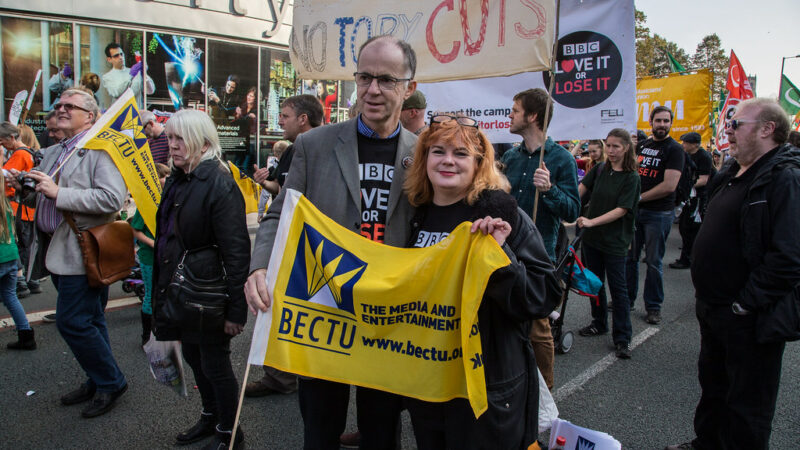Diversity in the creative industries must not be a casualty of COVID-19.

The fallout from the coronavirus pandemic will take years to understand and process.
Week after week Bectu – the union for those in the media and entertainment sectors – is dealing with new challenges thrown up by the crisis. They range from technical discussions about how our industries can get back to work and dealing with new working practices, to studying how government income support schemes are evolving and lobbying – often with success – for those who have fallen through the gaps to be brought into the safety net.
One area that needs as much attention, but is at risk of being overlooked, is the treatment and impact of underrepresented groups in our workforce during COVID-19.
These groups are already underrepresented in many of Bectu’s workplaces. Even without the impact of COVID-19, achieving equal opportunities is a constant struggle. I fear that much of the progress made so far may be undone and that is why return to work plans can’t overlook these people.
Women are already being overlooked and shouldering the economic burden of the crisis. For example, the Self-employment Income Support Scheme penalises people who have taken career breaks – often women with care responsibilities.
The scheme takes into account the last three years of profit to calculate the grant. But there is no mechanism to consider the impact of a year out for maternity leave. We have highlighted this concern to the Treasury as part of our lobbying work.
Our latest survey asking nearly 3,000 creative freelancers how they are surviving the crisis found that women and black, Asian and minority ethnic (BAME) respondents were more likely to be employed as a PAYE freelancer. However, only 33% of them reported that they have been furloughed.
Men were more likely to operate as a limited company and reported having money set aside to pay tax bills that they could use while their income has stopped, which isn’t an option for PAYE freelancers.
BAME respondents on PAYE were less likely to be furloughed and more likely to rely on Universal Credit, the survey found.
Again, we have highlighted these gaps to the Treasury, and called for guarantees that access to the income support schemes won’t have any impact on welfare entitlement for those with disabilities.
But it isn’t just the government’s approach to income support schemes that we need to be alert to. We also need to be mindful of employment practices as our industries open up again.
The informal nature of candidate selection, expectations to work long hours and low starting pay are some of the barriers to entering the creative industries. There are well-founded concerns that these practices will become even more entrenched as employers look to get their business operating again.
Many freelancers don’t necessarily want things to return to the status quo. We have been consulting members on the framework for a New Deal for Freelancers, including an element purely focused on equality and diversity.
This work is just as important as the other areas we are looking at. It has always been a priority for Bectu. I am extremely proud of the initiatives we have been involved in.
Recent examples include partnering with Primetime to give women, and BAME men and women, camera professionals the opportunity to meet directors of photography to progress their career; ensuring that hair and make-up artists have the skills and awareness to work with BAME actors; and Bectu’s incredibly well received Theatre Diversity Action Plan.
We can’t allow the coronavirus pandemic to undo all our achievements for underrepresented workers in the creative industries. Employers must see this as an opportunity to start afresh, reconsider their recruiting practices and ensure equal opportunity of access for all as we emerge from the crisis.
Philippa Childs is the head of Bectu.
To reach hundreds of thousands of new readers we need to grow our donor base substantially.
That's why in 2024, we are seeking to generate 150 additional regular donors to support Left Foot Forward's work.
We still need another 117 people to donate to hit the target. You can help. Donate today.



